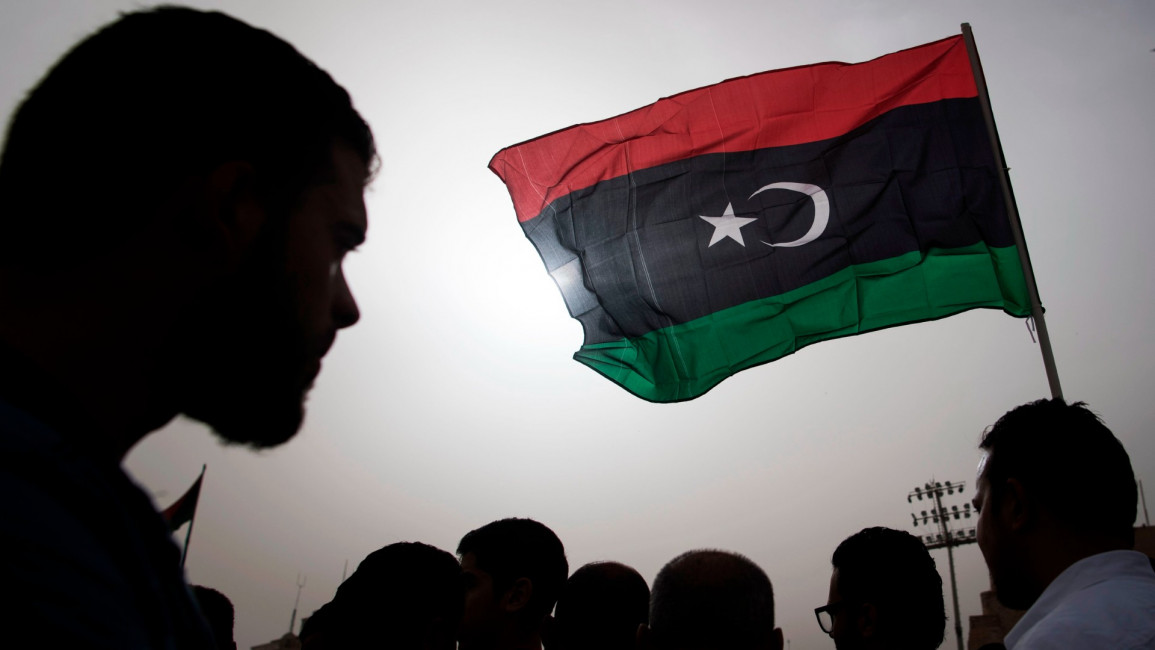
All is not well in Libya - what next?
After arresting the traveller, the men slaughtered his camel and posted a video of the gruesome scene on social media.
Whatever the world wants to believe, all is not well in Libya.
Although barely reported in the West, the killing caused an outcry in Libya, with many seeing it as a grim symbol of the country's attempted journey to peace. Since the appointment of the new Unity Government, there has also been a slew of assassinations.
Barely a day passes without the report of another killing. These attacks have reportedly been carried out by paramilitary groups who, according to United Nations Special Envoy Jan Kubis, "continue to operate without hindrance and with almost total impunity."
There are even signs of what some have described as an "emerging rift" between Field Marshal Khalifa Haftar and the new transitional administration. Although the Haftar-allied Tobruk government did officially hand over its powers to the Unity Government, prime minister Abdul Hamid Dbeibeh was strikingly absent from the ceremony, leading to speculation of unresolved issues between eastern and western officials.
 |
The UN and other foreign powers are taking an unrealistic top-down approach to nation-building |  |
The "experts" tell us that these are isolated events, that somehow under Dbeibeh's leadership, things will get better. But Dbeibeh - a billionaire "businessman" with a shadowy history, working for government, rather than in business - is no reformer; leaked extracts quoted by the AFP from a UN report on corruption in the Libyan Political Dialogue Forum (LPDF) election process, state that two Forum members "offered bribes of between $150,000 to $200,000 to at least three LPDF participants" if they committed to vote for Dbeibeh as prime minister.
Twitter Post
|
The report itself was slated to make its findings public on 15 March, but as a tainted government slid into place with UN backing, this embarrassing document appears to have been discreetly buried. Instead, the UN has continued to push the process forward, hoping - one assumes - that the ends will justify the means.
But just like the ideologue Italian fascist imperialists who first unified modern Libya in 1934, the UN and other foreign powers are taking an unrealistic top-down approach to nation-building. They appear to believe that unification can be achieved by imposing one-size-fits-all, harmful, and ill-thought-out directives.
Read more: Migrant boat with 130 aboard capsizes off Libya
In truth, the entire LPDF process was in many ways just the brainchild of a far-away, out-of-touch, intelligentsia with no real understanding of, or capacity to usefully address the harsh realities of day-to-day life in Libya. What Libya desperately needs is the exact opposite: a bottom-up approach, that puts communities first.
Previously I've argued that Libya would be much more secure and self-sufficient if it were more decentralised. With this approach, power would be delegated to municipal and provincial officials, all of whom would be responsible for upholding the law in their own areas.
So, instead of foisting centralisation on a fragmented country, Libya's leaders should be working to set up a more community-focused, federalist system. To quote the Brooking Institution's Federica Saini Fasanotti, this would involve "creating semi-autonomous regions in Tripolitania, Cyrenaica, and Fezzan".
In the long run, a federalist Libya would facilitate the creation and coexistence of national unity and cultural diversity. People would be more accountable to one another, and the militias that too evidently still run bloodily rampant in the country would have less of an incentive to prey on their peers.
Obviously, Rome wasn't built in a day. It may take years for Libya's wounds to heal fully. That's why, when dealing with a project of such daunting magnitude, with millions of lives at stake, it's desperately essential to build on a solid foundation. The ultimate goal should be to turn Libya into an oasis, a nation of peace, prosperity, and industry.
 |
In the long run, a federalist Libya would facilitate the creation and coexistence of national unity and cultural diversity |  |
But if Libya's leaders - blinded by their own selfish desires and supported by an arrogant international elite - keep chasing a mirage, I fear the country will descend all too quickly into barbarism and greed. Old vendettas will resume, and a riptide of violence will drag all Libyans into a merciless abyss.
We have a chance to make things right, to usher in a new age of independence and stability. We cannot do that by putting our faith in the same-old corrupt and craven politicians, hacks, and interventionists. Change must come from within, from the Libyan people, not without them. That is our only hope.
Moin Kikhia is the Founder and President of The Libyan Democratic Institute. For 10 years he worked in Libya's finance ministry. After the revolution, he served as a humanitarian coordinator for the National Transitional Council and as a national election adviser.
Follow him on Twitter: @moinkikhia
Have questions or comments? Email us at: editorial-english@alaraby.co.uk
Opinions expressed in this article remain those of the author and do not necessarily represent those of The New Arab, its editorial board or staff.


![President Pezeshkian has denounced Israel's attacks on Lebanon [Getty]](/sites/default/files/styles/image_684x385/public/2173482924.jpeg?h=a5f2f23a&itok=q3evVtko)



 Follow the Middle East's top stories in English at The New Arab on Google News
Follow the Middle East's top stories in English at The New Arab on Google News


